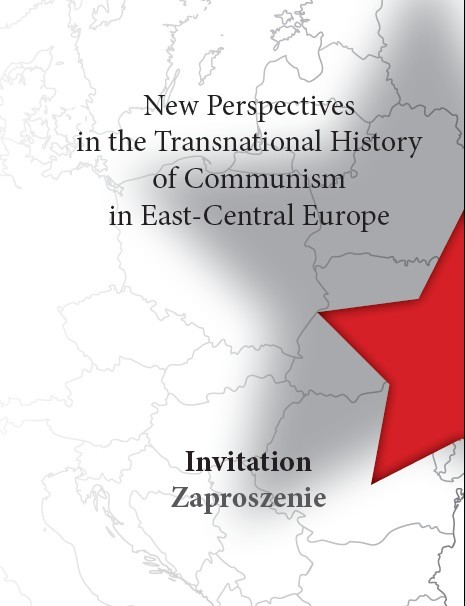 International conference is held in Poznań, Poland, on 16–17 October, 2014, entitled „New Perspectives in the Transnational History of Communism in East-Central Europe” organized by the Institute of National Remembrance, Poznan Branch; the Department of Philosophy, Adam Mickiewicz University; the Polish Philosophical Society, Poznan Branch; and the Hungarian Academy of Sciences, Research Center for the Humanities, Institute of History. The Scientific Committee includes Péter Apor (Hungarian Academy of Sciences), Uwe Backes (Hannah-Arendt-Institut für Totalitarismusforschung an der TU Dresden), Stefano Bottoni (Hungarian Academy of Sciences), Krzysztof Brzechczyn (Adam Mickiewicz University /Institute of National Remembrance), Sándor Horváth (Hungarian Academy of Sciences), Chris Lorenz (Free University of Amsterdam), Tomasz Pawelec (University of Silesia), and Michal Pullmann (Charles University in Prague).
International conference is held in Poznań, Poland, on 16–17 October, 2014, entitled „New Perspectives in the Transnational History of Communism in East-Central Europe” organized by the Institute of National Remembrance, Poznan Branch; the Department of Philosophy, Adam Mickiewicz University; the Polish Philosophical Society, Poznan Branch; and the Hungarian Academy of Sciences, Research Center for the Humanities, Institute of History. The Scientific Committee includes Péter Apor (Hungarian Academy of Sciences), Uwe Backes (Hannah-Arendt-Institut für Totalitarismusforschung an der TU Dresden), Stefano Bottoni (Hungarian Academy of Sciences), Krzysztof Brzechczyn (Adam Mickiewicz University /Institute of National Remembrance), Sándor Horváth (Hungarian Academy of Sciences), Chris Lorenz (Free University of Amsterdam), Tomasz Pawelec (University of Silesia), and Michal Pullmann (Charles University in Prague).
The goal of the conference is to analyze the status of concepts of ‘the state’ and ‘the nation’ in east-central European historiography, their explanatory strength and social functions; the role of alternative theoretical categories in new empirical research, modes of explanation and organization in historical narratives; and perspectives on comparative studies (East-Central European societies, East-Central and Western Europe, and other regions of the world e. g. Latin America in comparison to East Central Europe).
The conference will consist of five different panels dealing with the following topics: 1. new perspectives on the historiography of post-1945 East-Central European history. How could one write a global history of the Soviet Bloc? 2. Cooperation and competition among East-European state security services; 3. between shortage economy and consumer society: East-Central Europe and the globalizing world; 4. ethnic conflicts in South-East Europe at the end of the Cold War: 19th paradigms in a post-modern context; 5. postwar generations and the emerging global movements and ideas, the impact of New Left theories, social Catholicism, life-style movements and anti-technological or ecological ideologies.



